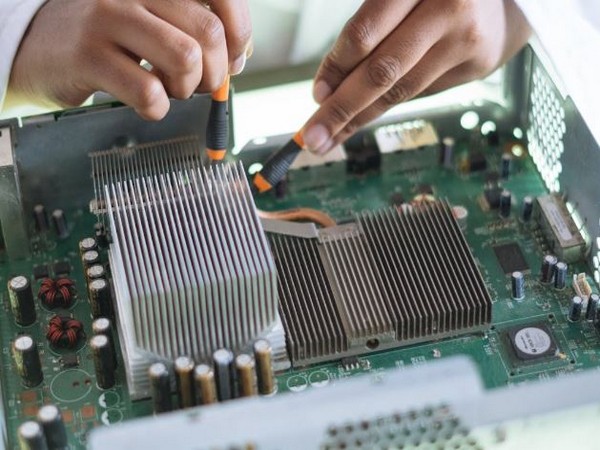India Urged to Deepen Partnerships with Taiwan, Japan for Stronger Semiconductor Presence
A report by Elara Securities recommends that India strengthen its partnerships with Taiwan and Japan to bolster its semiconductor ecosystem. Despite aggressive incentives, Taiwanese companies like TSMC remain hesitant due to geopolitical tensions. Collaboration with both nations could provide necessary expertise and investment, enhancing India's position globally.

- Country:
- India
India should deepen its partnerships with countries such as Taiwan and Japan to strengthen its presence in the semiconductor ecosystem, according to a report by research firm Elara Securities. Taiwan holds a dominant position globally in semiconductor manufacturing, with its companies accounting for 78 percent of the world's fab manufacturing and 53 percent of the ATMP market.
Despite over 312 Taiwanese firms leading this sector, their involvement in India's nascent semiconductor industry remains limited. The report highlights that, despite aggressive government incentives, Taiwan's largest semiconductor companies, including TSMC, have shown little interest in establishing fabs in India. Geopolitical tensions, particularly in the Taiwan Strait, have led Taiwanese companies to diversify their operations abroad.
TSMC and other key players such as UMC are now investing in fabs in the U.S., Japan, and Germany, focusing on both advanced and legacy chip production. Notably, TSMC is building fabs in Arizona and Germany, collaborating with local suppliers to produce advanced chips. However, no collaboration with Indian companies has been announced. The report states that Japan is providing training to Indian workers, while Taiwan invests in semiconductor clusters in Southeast Asia. Strengthening such collaborations could provide the expertise and investment needed to bolster India's semiconductor ecosystem.
The report notes the collaboration between Tata Group and Powerchip Semiconductor Manufacturing Corporation (PSMC) as a positive step. Tata recently announced a partnership with PSMC to build a 28-nanometer fab plant. The report emphasizes the need for India to enhance its infrastructure and manufacturing ecosystem to attract significant investments in the sector. India also must select the right companies to improve manufacturing yields.
Concerns about the talent pool are also highlighted, noting that while many Indian students receive semiconductor training in Taiwan, most prefer to stay abroad, hindering India's ability to build a skilled domestic workforce. Additionally, India's infrastructure, intellectual property protection, and regulatory environment need improvements to attract global semiconductor manufacturers.
On the global front, India has the opportunity to capitalise on shifting trade dynamics. With the U.S. and EU wary of Chinese components, India could position itself as a non-China alternative. Domestically, India's demand for semiconductor chips is expected to surpass USD 100 billion by 2030, driven by the growing demand for electronic goods.
(With inputs from agencies.)
ALSO READ
Shanghai Shares Hit Seven-Month Low Amid Manufacturing Slump
India Seeks Enhanced Collaboration with Singapore in Advanced Manufacturing and Semiconductors
Minister Motsoaledi Urges Pharmacists to Lead in Vaccine Manufacturing
Japanese Yen Soars Amid Market Turmoil Following U.S. Manufacturing Data
WHO guidance takes aim at ‘antibiotic pollution’ from manufacturing labs










